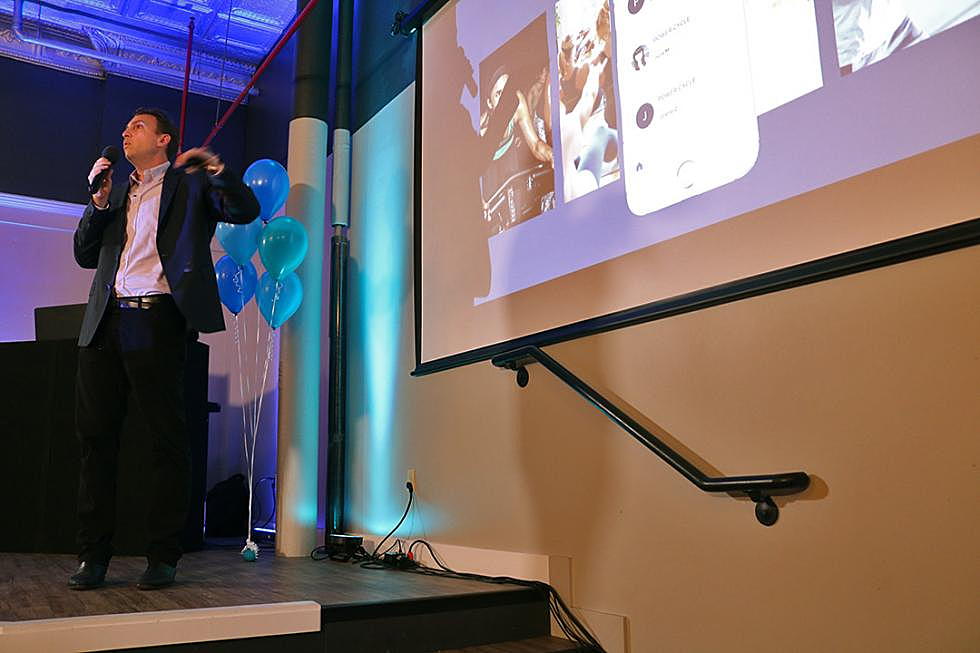
ClassPass CEO: Missoula checked all the right boxes in company’s national search
Wage inflation in New York and San Francisco and their high cost of living sent ClassPass on a mission last year to find a new location for its third North American office.
After a lengthy search that placed Missoula, Bozeman, Provo and Fort Collins on the short list, Missoula rose to the top by checking all the right boxes – a talented workforce, low facility costs, a business friendly government and a strong university.
But Fritz Lanman, ClassPass CEO, said it also offered atypical assets, including progressive community values and a high quality of life. Oddly, he added, it required a layover when traveling from most major metros – cities inundated with companies fleeing their coastal digs for a more cost-friendly environment.
“If there was a layover to get to a place, other people who didn't care about the community as much wouldn't be willing to do that, so I thought it was a positive filter,” Lanman said Wednesday.
“I hope other companies come here, and if they do come here, they're not just choosing it because of what an Excel spreadsheet says about the local talent supply, the wages and facilities, but because they fall in love with the region and the community.”
Lanman sat with Missoula Mayor John Engen on Wednesday during the third annual Innovate UM conference to discuss why his company chose Missoula and what, exactly, the city could do as it looks to compete for other firms and build an innovation ecosystem.
ClassPass opened its third North American office in Missoula in early 2018 and began its local operation with 35 employees. It has since grown to 55 and it recently announced its plans to fill 120 positions within the next two years.
“The interesting thing about having a conversation with ClassPass is that we ended up being completely honest with them,” Engen said. “Our dog and pony show was relatively dog and pony free. At the end of the day, ClassPass made its choice on the merits of the place and what we're doing today.”
Missoula – and Montana for that matter – may be at a disadvantage in its efforts to recruit outside firms given its lack of incentives. Other cities offer tax breaks, free buildings or zoning wavers to help entice new businesses.
Lanman said Missoula offered none of it, though it did present other assets not available in New York and San Francisco. The University of Montana and the city's affordability – as viewed by residents in other cities – stood among them.
“Literally, there's not enough talent supply in New York and San Francisco to support the needs of the tech ecosystem,” Lanman said. “Moreover, you get these really unhealthy dynamics going on where Google and Facebook are driving massive wage inflation.
“That's great if you're a worker there, but the problem is, the wage inflation they're driving is cycling into higher real estate prices. It's literally unaffordable for a majority of people, so you're starting to see an exodus of talent to Portland, Seattle and Oakland, and now we're giving people opportunities to come here.”
While ClassPass ramps up its hiring and pays more than the average wage, another tech-newcomer is looking to set up shop in Missoula. Earlier this month, the Israeli firm 4Cast selected Missoula as the location for its U.S. Office, where it plans to develop and sell support simulators earmarked for several key industries, including homeland security, defense and health care.
What's more, Advanced Technology Group continues to grow at its downtown location. It celebrated the hiring of its 100th Missoula employee last year has plans to employ 250 next year.
For Missoula to grow its innovation ecosystem, Lanman said, it will need several more victories. That could tip the scale in the city's favor, attracting new firms that train new workers who start new businesses that attract additional investment.
The wheel begins to turn at that point, he said.
“One of the reasons the Bay Area has been so successful is that it has this flywheel anchored around Stanford and also many other universities there,” Lanman said. “People start successful companies, and people leave these companies and become entrepreneurs or investors, and they hire out of the university.”
While Missoula has a strong university and a friendly government, it may be missing that third leg of the stool – that being a robust investor network, Lanman said.
“My peers in the Bay Area have direct line to professors at Stanford and will talk about who the good computer science students are while they're still in their freshman year,” he said. “We're missing that part of the community ecosystem, but I think that will come.
